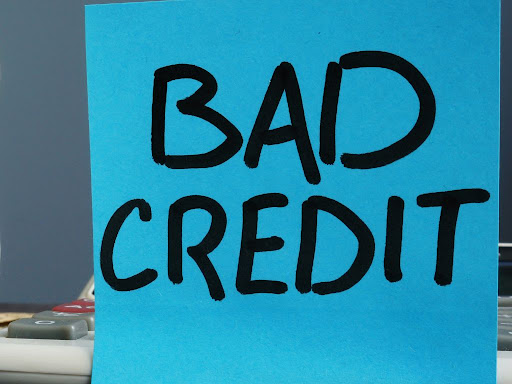In today’s financial landscape, credit plays a crucial role in our lives. It determines our ability to obtain loans, secure favourable interest rates, and access various financial opportunities. However, not everyone has a perfect credit score.
Many individuals find themselves facing the consequences of bad credit. But is having bad credit really a bad thing? Let’s explore this topic further.
What is Bad Credit?
Before delving into the impact of bad credit, it’s important to understand what it means. Bad credit is an indication that an individual has a history of late payments, defaults, or other negative financial behaviours. Lenders use credit scores to assess the risk of lending money to individuals, and a bad credit score suggests a higher risk.
The Impact of Bad Credit
Having bad credit can have several significant consequences that can affect an individual’s financial well-being. Let’s explore some of the key impacts of bad credit.
Difficulty in Obtaining Loans
One of the most immediate and noticeable effects of bad credit is the difficulty in obtaining loans. Traditional lenders, such as banks and credit unions, are often hesitant to lend money to individuals with bad credit. They perceive them as high-risk borrowers who may default on their loan payments.
As a result, individuals with bad credit may face rejections or limited options when seeking loans for various purposes, such as buying a car or a home. But having bad credit is not an end. There are direct lenders who consider people with bad credit too.
Higher Interest Rates
Even if individuals with bad credit manage to secure a loan, they often face higher interest rates compared to those with good credit. Lenders compensate for the increased risk by charging higher interest rates, which can significantly increase the cost of borrowing.
This means that individuals with bad credit end up paying more in interest over the life of the loan, making it harder to manage their finances effectively.
Limited Financial Opportunities
Bad credit can also limit an individual’s financial opportunities. It can make it challenging to qualify for credit cards, which are often necessary for everyday transactions and building credit.
Additionally, individuals with bad credit may struggle to secure favourable terms for renting an apartment or obtaining insurance.
These limitations can hinder their ability to participate fully in the financial system and achieve their financial goals.
Understanding the Causes of Bad Credit
To address the issue of bad credit, it’s essential to understand its underlying causes. Several factors can contribute to the development of bad credit.
Late Payments and Defaults
One of the primary causes of bad credit is a history of late payments and defaults. When individuals consistently fail to make their payments on time, it negatively impacts their credit scores.
Late payments and defaults indicate a lack of financial responsibility and can significantly damage an individual’s creditworthiness.
High Credit Utilization
Another common cause of bad credit is high credit utilization. Credit utilization refers to the percentage of available credit that an individual is currently using.
When individuals max out their credit cards or have high balances relative to their credit limits, it can negatively impact their credit score. High credit utilization suggests a reliance on credit and an increased risk of default.
Bankruptcy and Foreclosure
Bankruptcy and foreclosure are extreme financial situations that can lead to bad credit. Bankruptcy occurs when individuals are unable to repay their debts and seek legal protection from their creditors.
Foreclosure, on the other hand, happens when individuals fail to make mortgage payments, leading to the loss of their property.
Both bankruptcy and foreclosure have severe consequences for an individual’s credit score and financial stability.
Rebuilding Your Credit
While bad credit can have significant consequences, it is not a permanent situation. With time and effort, individuals can take steps to rebuild their credit and improve their financial standing.
Paying Bills on Time
One of the most effective ways to rebuild credit is by consistently paying bills on time. Timely payments demonstrate financial responsibility and can gradually improve an individual’s credit score.
Setting up automatic payments or reminders can help individuals stay on track and avoid late payments.
Reducing Credit Card Debt
Another crucial step in rebuilding credit is reducing credit card debt. Paying down outstanding balances and keeping credit card utilization low can have a positive impact on credit scores.
Creating a budget and prioritizing debt repayment can help individuals regain control of their finances and improve their creditworthiness.
Seeking Professional Help
In some cases, seeking professional help may be necessary to rebuild credit. Credit counselling agencies and financial advisors can provide guidance on managing debt, creating a budget, and improving credit scores.
These professionals can offer personalized advice and strategies tailored to an individual’s specific financial situation.
The Benefits of Good Credit
While bad credit can be challenging, good credit brings several benefits that can significantly improve an individual’s financial well-being.
Access to Better Loan Options
Having good credit opens a world of better loan options. Individuals with good credit scores are more likely to be approved for loans and have access to favourable terms and lower interest rates.
This allows them to secure financing for important life events, such as buying a home or starting a business, without facing excessive costs.
Lower Interest Rates
Good credit also translates into lower interest rates. Lenders view individuals with good credit as low-risk borrowers, resulting in lower interest rates on loans and credit cards.
This means that individuals with good credit can save money in interest payments and have more disposable income to allocate towards other financial goals.
Improved Financial Stability
Perhaps the most significant benefit of good credit is improved financial stability. With good credit, individuals have more control over their financial lives. They can qualify for better insurance rates, negotiate favourable terms for renting or leasing, and have access to a wider range of financial products and services.
Good credit provides individuals with the flexibility and security they need to navigate life’s financial challenges.
Conclusion
While having bad credit can present challenges, it is not an insurmountable obstacle. By understanding the impact of bad credit, addressing its underlying causes, and taking proactive steps to rebuild credit, individuals can improve their financial standing and regain control over their financial lives.
Good credit brings numerous benefits, including access to better loan options, lower interest rates, and improved financial stability.
By prioritizing credit management and taking steps toward financial health, individuals can overcome the negative consequences of bad credit and pave the way for a brighter financial future.





